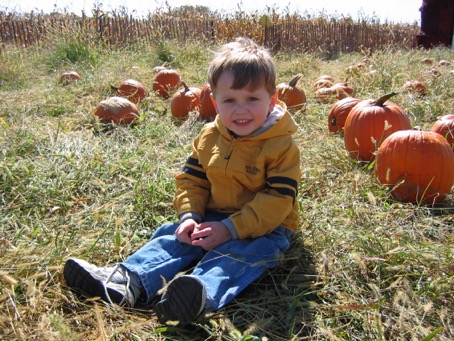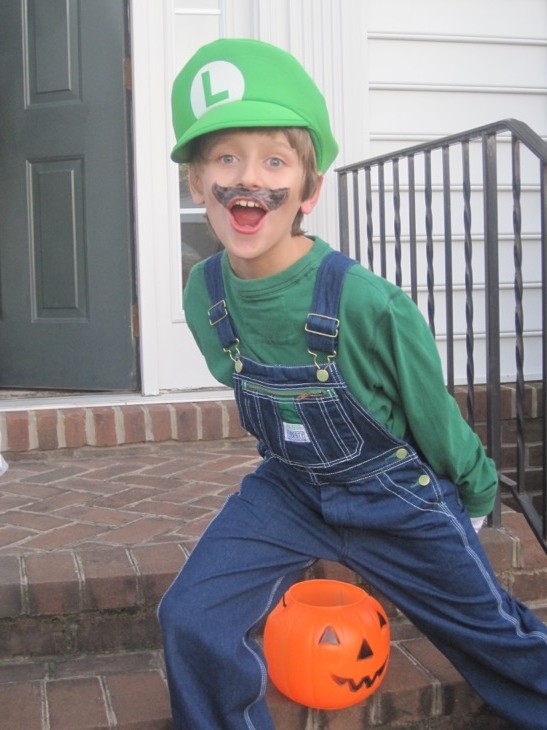If you have a child with autism, then you know that there are good days and bad days. You have days where autism takes a back seat and days where autism is not only sitting up front with you, it’s in the driver’s seat.
Last week was one of those autism-is-in-the-driver-seat kind of weeks, so I lashed out a bit. I gave you all a list of the sometimes insensitive, rude and ignorant comments said to me as a mother of an autistic child advising you on what not to say to mother of a child with autism. I won’t apologize for my words because, well, last week I needed to say them and it felt good… really good.
But now I realize that it wasn’t fair to tell everyone what not to say to a parent of a child with autism, if I don’t give some advice on what to say.
Just like every child is affected differently by an autism diagnosis, each parent is also affected differently. A comment that I believe is kind and encouraging, another parent may see as rude and condescending. Needless to say, I can’t give you an exhaustive list since every situation is different, however, I have come up with a few things people have said to me over the years that clearly left a mark and not a scar. So, this is a list of things to say to a parent loving a child with autism that made me smile and want to hug them rather than hit them or scratch their eyes out.
The one thing to remember, regardless of the child or the parent, is to always be accepting, be aware and be kind.
1. “Wow! I can’t believe how far he has come!”
Even if the distance from where he was to where he is seems miniscule to you, chances are it is a huge, expansive distance to my son and me. Commenting on progress is a beautiful thing to say, but only if you really see progress or change. We mothers are like dogs; we can smell your fear in an off-handed, don’t-know-what-else-to-say remark. So if you do believe it, then say it. And be prepared to be hugged.
2. “He is so good at… [insert anything here].”
Whether it’s a perfect Jim Carrey imitation, how long he can sit watching the same episode of “Thomas the Tank Engine” and recite every word perfectly, or his ability to memorize all the details of every earthquake in California’s history, point it out. Point out the positives. See the positives. We see it. We know it. We love when you do, too.
3. “My friend’s, sister’s, cousin’s, great aunt twice removed’s son has autism and he is in college now.”
Yeah, we know that your friend’s, sister’s, cousin’s, great aunt twice removed’s son is not our child, and we know that autism is a spectrum of strengths and struggles, but, hearing success, hearing good news and having you share that in a kind, accepting and compassionate way, makes us love you, even if we don’t know you. I hope you like hugging strangers, because this may get you an even bigger hug than #1.

4. “Is there anything I can do to help?”
Asking this question in the middle of aisle six in the busy, loud grocery store where our child is currently having a huge sensory meltdown as we try to calm him down and discreetly scooch the glass shards from the spaghetti jar that just missed your head under our cart, rather than staring at what you believe may be an “undisciplined child” having a temper tantrum, may possibly make you the hero in a blog story that goes viral on social media three hours after you get home from the grocery store.
We know people are staring. We know people are judging. We know people don’t get it. That’s why those eight simple words from just one person are beautiful. Oh, and sorry about the spaghetti sauce on your new shoes.
5. “He feels so much, doesn’t he?”
This is a kind, compassionate and understanding way to say that when you see our child crying easily, melting down regularly, and being terribly inflexible, you are letting us know that you recognize that there may be more than meets the eye and that our child is not bad, and neither are we.
6. “He is fascinating.”
Not weird, not odd, not quirky. The way his mind works is fascinating and often has me in awe and wonder. I love knowing that you see his mind as extraordinary and not as something that is broken and needs to be “fixed.”
7. “He really loves you.”
Yes he does. There is such a misconception that children with autism don’t feel love, that their emotions are too bogged down to “feel,” but, believe me, they feel love, they know love, they give love. And on days when it’s hard, on days where we have lost our patience, raised our voice and dried countless tears, we don’t feel very lovable, so it’s great when others see and feel that love, too. We know that our child loves us like no other and although that love may look “different,” it is never to be trivialized or minimized.

8. “I wonder what he is thinking?”
O.M.G. If you only know how many times a day I have wondered the very same thing. “If only I could get inside his head,” “If I only knew what he was feeling,” “If only he would let me in” has crossed every parent’s mind countless times. Knowing that you take the time to wonder, too, well, you have just gone up higher in rank on the Favorites list on my iPhone.
9. “What is autism and why do they call it a spectrum?”
Yes, maybe we are tired of talking about autism, maybe we want people to see past autism and just see our child, but, we will never turn down an opportunity to educate someone about our child and debunk the “He doesn’t act like ‘Rain Man’” myth. So please, ask away.
10. “He has taught me so much!”
These kids see the world differently and if you take the time to get to know them, really get to know them, you will open your mind and your heart to their world and you will be better for it.
11. “I brought wine.”
Even though you might not fully understand what loving a child with autism is like, the fact that you are here, on our doorstep, holding a bottle of wine and trying to understand, well, there are no words to express our gratitude. We love that you feel like we are in this together, so grab two glasses while I get the bottle opener.
12. “I have Velveeta Shells and Cheese (or whatever the one and only type of food is that child will eat).”
You win. Game over.
When trying to decide what you should say, keep in mind that these children and adults with autism may have severe language deficits and they may not be able to say a word, but that does not mean they aren’t communicating with you. Take their lead. Maybe no words are necessary. Maybe you don’t have to say anything. Maybe it’s just a kind smile, a door held, making eye contact with us or a kind “hello” to our child.
However, if we initiate the conversation, if we say the words, “My son has autism,” just give us a knowing look, a kind smile and ask, “How is he doing?” We may say “fine” or we may break into a 10-minute long discussion about how far he has come and how far we know he will go. Whichever it is, trust me when I say, we will always remember that you asked.
A longer version of this post originally appeared on The AWEnesty of Autism.
